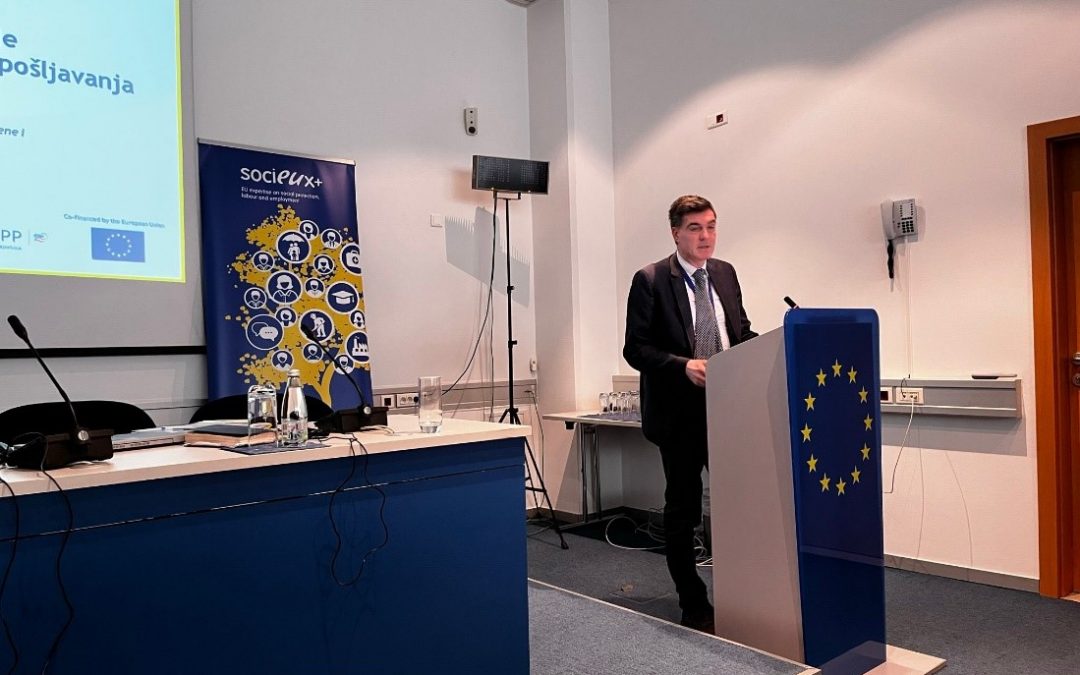


SOCIEUX+ peer to peer cooperation activities expanded to Western Balkans countries
Kick-off meeting and presentation of SOCIEUX+ at the EU Delegation, Sarajevo, 24 October 2022. Photo courtesy of M.B. SOCIEUX+ peer to peer cooperation activities expanded to Western Balkans countries SOCIEUX+ has expanded its offer of peer-to-peer cooperation...-
Which skills development path is needed to stabilize rural population by developing the green economy?
- Start activities
- 18/04/2022
- End activities
- 09-12-2022
- Partner Institution
- Department of Continuing Professional Training (DFPC)
- Type of Assistance
- Policy development
- Code
- 2021-17
- Description
- This ambitious action, in partnership with the Department of Continuing Professional Training of the government of New Caledonia, is at the crossroads between employment of young and vulnerable persons, limiting rural exodus, climate resilience and food self-sufficiency. The goal of this action was to elaborate a need-based strategy to support agroecological value-chains, by encouraging traditional know-how and acquired skills of members of the Kanak communities and leveraging on traineeship opportunities for women and youth. Experts from Belgium and France produced a thorough diagnosis of the governance of the agroecological sector, a mapping of ongoing green economy projects in place, an action plan to promote green jobs, and a skills reference system for young rural workers to have better access to trainings in agroecology.
-
Comprehensive review of Botswana's Worker's Compensation framework, to develop a national framework reform proposal
- Start activities
- 25-04-2022
- End activities
- 10-12-2022
- Partner Institution
- Ministry of Labour and Home Affairs (MLHA)
- Type of Assistance
- Legislative & regulatory framework development
- Code
- 2022-03
- Description
- The Department of OSH at Ministry of Labour and Home Affairs of Botswana was working on exploring whether and how it would be feasible to replace employer liability provisions with a system of workers’ compensation based on social insurance. As a result of the mobilization of public expertise from Germany, Italy, Spain and Slovenia in the framework of SOCIEUX+, the current national legislation and regulatory framework on workers' compensation was assessed against existing best practice and international standards and guidance and recommendations were provided for updating the current national legislation and regulatory framework, based on feasibility, technical capacity and sustainability considerations.
-
Operational Review of the National Health Insurance Scheme in Zambia
- Start activities
- 18-04-2022
- End activities
- 30-09-2022
- Partner Institution
- National Health Insurance Management Authority
- Type of Assistance
- Institutional capacity building
- Code
- 2022-02
- Description
- The purpose of this action was for the National Health Insurance Management Authority (NHIMA) to optimize the management of the National Health Insurance Scheme (NHIS). NHIMA was established by the National Health Insurance Act No.2 of 2018. The Act provided for the establishment of a compulsory National Health Insurance Scheme under the management of NHIMA. The Scheme, as part of the Health Care Financing Strategy of the Ministry of Health, is aimed at providing sound financing of the national health system and enhance universal access to quality insured healthcare services for all Zambians. NHIMA wished to understand where they stand after two years of implementing the Scheme, where are their strengths or weaknesses, and identify potential bottlenecks. NHIMA also wished to gain more knowledge and guidance on strengthening their current health-financing system, as well as to understand possible health financing options in view of attaining universal health coverage. Mobilized experts from Estonia, Finland, France, and Germany accompanied the partner’s reflection in the framework of 3 activities.


